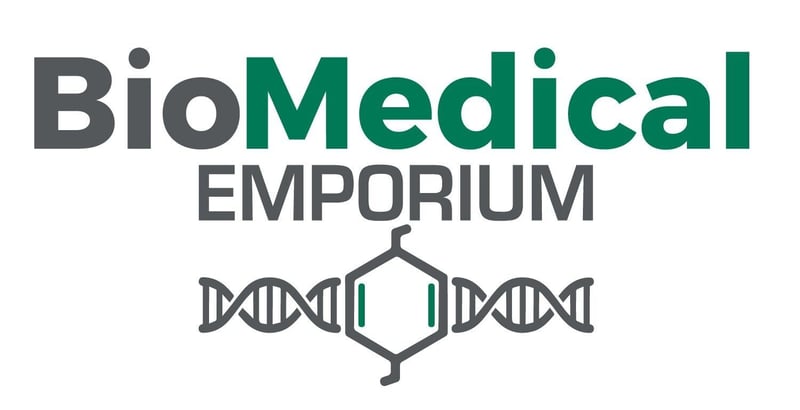Wrinkles, Thinning, and Dryness? How Menopause Transforms Your Skin
Written by: Tishala Communications Save to Instapaper
[Johannesburg, South Africa – 04 December, 2024] – Menopause is a transformative time in a woman's life, and its impact on the skin is among the most noticeable changes. The decline in estrogen levels during menopause profoundly affects the skin’s structure, hydration, and resilience, leading to issues such as thinning, dryness, and the formation of wrinkles.
Why Does It Happen?
Estrogen is crucial for maintaining skin strength, elasticity, and hydration. During menopause, the reduction in estrogen causes a drop in hydrophilic glycosaminoglycans and proteoglycans, which are essential for maintaining skin hydration and structural integrity. Additionally, collagen and elastin production decreases, weakening the skin’s layers.
Dr. Judey Pretorius, a biomedical scientist and skincare expert, explains:"As estrogen levels drop, the skin becomes thinner and less elastic. This weakens the moisture barrier, leading to dryness and wrinkles, particularly in sun-exposed areas like the face, neck, and hands. These changes can deeply affect how women perceive their appearance during menopause."
Where Are the Effects Most Noticeable?
Menopause-induced skin changes are most pronounced in sun-exposed areas. UV damage worsens collagen loss and dehydration, leading to deeper wrinkles, thinner skin, and reduced muscle volume. Additionally, other estrogen-sensitive tissues, such as the vaginal epidermis, are affected, with vaginal atrophy impacting up to 60% of menopausal women.
Key Ingredients to Support Skin Health
Targeted skincare can mitigate menopause-related skin changes. Dr. Pretorius highlights key ingredients that support skin health:
- Hyaluronic Acid: Improves moisture retention, strengthens the skin matrix, and supports collagen production.
- Niacinamide: A versatile antioxidant that protects against UV damage and improves texture and tone.
- Vitamin E: Reduces free radical damage, enhances hydration, and guards against photoaging.
- Soy Isoflavones: Natural phytoestrogens that combat collagen breakdown and improve skin elasticity.
"By incorporating skincare products enriched with these ingredients, women can restore hydration, improve elasticity, and reduce the appearance of wrinkles. A targeted routine helps manage menopausal skin changes, allowing for healthier, more confident ageing," says Dr. Pretorius.
About Dr. Judey Pretorius
Dr. Judey Pretorius is a leading Biomedical Scientist specialising in wound healing, regenerative medicine, and cell therapy. With a PhD in Pharmaceutical Chemistry and a Master’s in Genetics and Molecular Biology, she is the founder of Biomedical Emporium®, where she creates cutting-edge skincare products that rejuvenate and repair skin naturally.
Dr. Judey is available for interviews across television, radio, and print to discuss her transformative work in the skincare industry.
Press Release Submitted By
Issued by: Tishala CommunicationsMedia Contact: Lesego MakgathoEmail: This email address is being protected from spambots. You need JavaScript enabled to view it.Phone: 082 762 4946
Total Words: 350
Social Media Post
Wrinkles, Thinning, and Dryness? Menopause and Your Skin
Menopause changes your skin, but the right care can help! Discover expert insights and skincare solutions from Dr. Judey Pretorius. #MenopauseSkinCare #HealthyAgeing #SkinScience #BiomedicalEmporium #mypressportal #pressrelease #AfricaNewsroom #bizcommunity #publicrelations #africa #southernafrica #southafrica
Get new press articles by email
Tishala Communications is a proudly women-owned South African public relations and marketing agency specialising in events and campaigns. At Tishala we pride ourselves in providing a highly-customised service that meets our clients’ unique needs and requirements and ensures them high-level media exposure across all media platforms.
The Pulse Latest Articles
- Opinion Piece: Activating Leadership To Engage The Passive Workforce (February 11, 2026)
- Tchagra Trail Wilderness Consulting Launches A New Safari Experience In Photography And Tracking (February 9, 2026)
- Magic: The Gathering Releases Lorwyn Eclipsed (February 6, 2026)
- Back To Work, Back To Balance: Rethinking The 3pm Slump (February 5, 2026)
- Back-to-school Lunchboxes That Just Make Sense (February 5, 2026)
